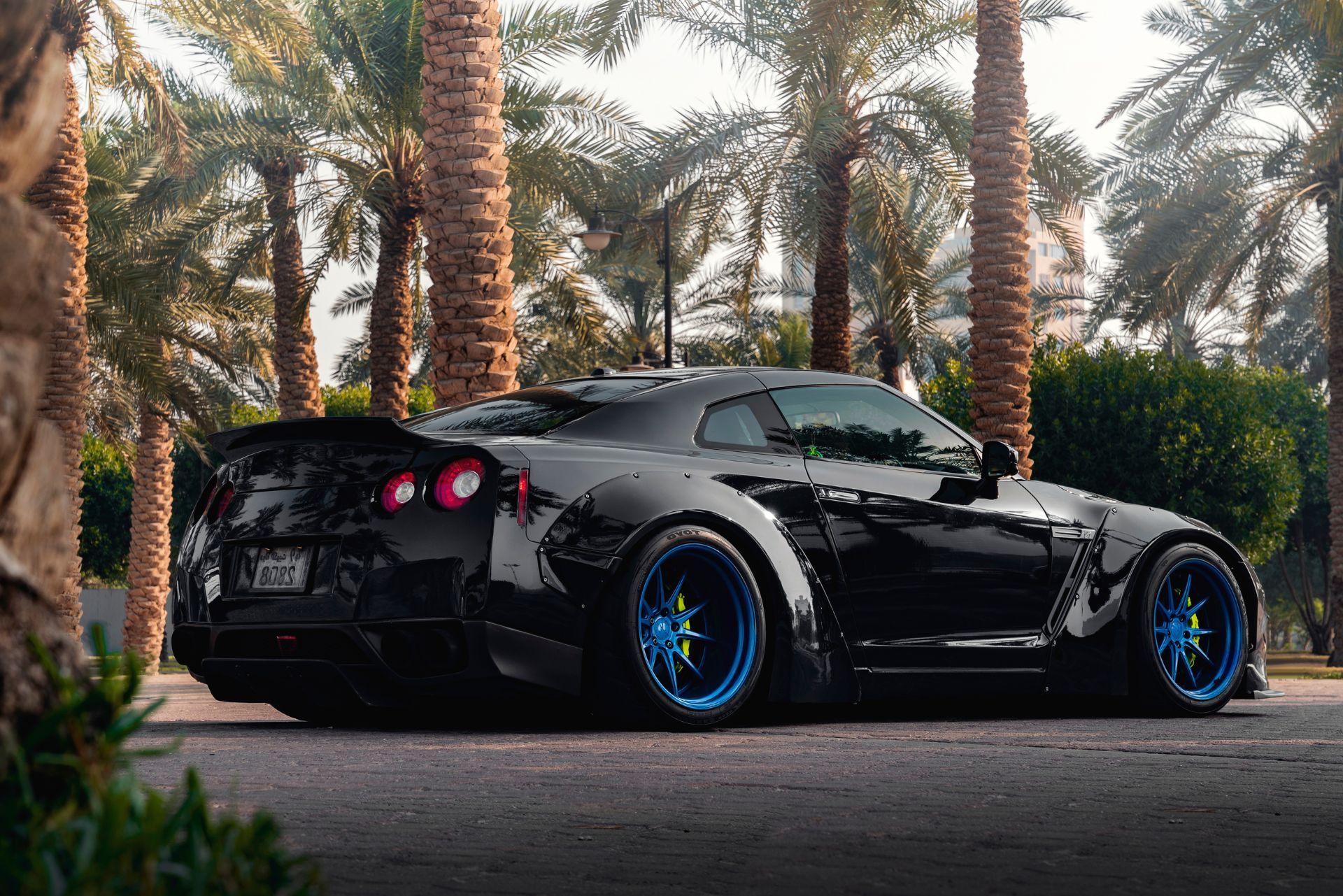
Most Common Personal Policies
Index
Contact Us
When it comes to car insurance, modified vehicles present a unique set of challenges and considerations. Enthusiasts who modify their cars should understand how these changes can affect their insurance coverage and rates. In this article, we'll delve into various aspects of modified car insurance, providing you with everything you need to know to make informed decisions.
Understanding Modified Car Insurance
Modified car insurance is designed specifically for vehicles that have been altered from their original factory specifications. These modifications may include changes to the performance, aesthetics, or overall functionality of the vehicle. Standard insurance policies often do not cover these modified aspects, making specialized insurance essential for owners of modified cars.
Definition of Modified Car Insurance
Modified car insurance specifically covers vehicles that have undergone alterations, such as engine upgrades, body kit installations, custom paint jobs, and changes to the suspension or exhaust systems. This type of insurance takes into consideration the unique risks associated with modified cars and provides tailored coverage options to protect both the vehicle and the driver. Additionally, insurers often assess the value of the modifications separately, which can significantly affect the overall premium and coverage limits. This ensures that all enhancements are adequately valued, providing peace of mind for car enthusiasts who invest heavily in their vehicles.
Importance of Modified Car Insurance
Having modified car insurance is crucial for several reasons. First, it ensures that you are adequately covered in case of an accident, theft, or damage. A standard policy may not cover losses related to modifications, leaving you financially responsible for repairs or replacement. Second, modified car insurance can offer liability coverage for any injuries or damages resulting from an accident involving your modified vehicle. Furthermore, many modified car owners participate in car shows, races, or other events where the risk of damage or accidents may be heightened. Specialized insurance can provide coverage for these specific scenarios, ensuring that you are protected during these high-risk activities. This tailored approach not only safeguards your investment but also allows you to enjoy your vehicle to the fullest without the constant worry of inadequate coverage.

The Basics of Car Modification
Car modification refers to any change made to a vehicle that alters its performance, appearance, or functionality. While many car enthusiasts enjoy personalizing their vehicles, it's essential to understand the types of modifications and the potential legal and safety implications. Modifying a car can be a rewarding endeavor, allowing owners to express their individuality and enhance their driving experience. However, it also requires careful consideration and planning to ensure that the modifications align with both personal goals and legal requirements.
Types of Car Modifications
Car modifications can be broadly categorized into performance enhancements, aesthetic changes, and functional upgrades. Performance modifications may include engine tuning, installing turbochargers, or enhancing brake systems. These upgrades can significantly improve a vehicle's speed, handling, and overall driving dynamics. Aesthetic modifications often consist of custom paint jobs, new rims, or aftermarket body kits, allowing drivers to create a unique visual identity for their car. Finally, functional upgrades can range from improved lighting systems to advanced audio setups, enhancing the driving experience and making the vehicle more enjoyable and practical for everyday use.
Among the various types of modifications, suspension upgrades are particularly popular among car enthusiasts. These modifications can improve handling and ride quality, making the vehicle more responsive during turns and providing a smoother ride over rough terrain. Additionally, many enthusiasts opt for performance exhaust systems, which not only enhance engine efficiency but also give the car a more aggressive sound profile. Each modification comes with its own set of considerations, including cost, installation complexity, and potential impact on the vehicle's warranty.
Legal and Safety Aspects of Car Modifications
Before modifying your car, it's vital to be aware of local regulations and safety requirements. Some modifications may not be street-legal, and failing to comply with regulations can result in fines or the inability to insure your vehicle. Additionally, modifications can affect the safety of the vehicle, so it's essential to ensure that any changes made are in line with safety standards. For instance, lowering a vehicle's suspension can improve handling but may also lead to reduced ground clearance, which can pose risks when navigating uneven surfaces.
Moreover, it's crucial to consider how modifications might affect the vehicle's resale value. While some modifications can enhance appeal and performance, others may deter potential buyers who prefer factory specifications. Keeping thorough documentation of modifications, including receipts and installation details, can help maintain the car's value. Engaging with local car clubs or online forums can also provide valuable insights into the best practices for modifications, ensuring that enthusiasts stay informed about both trends and regulations in their area.
How Car Modifications Affect Insurance Rates
Insurance rates for modified vehicles can differ significantly from those for standard vehicles. Various factors influence these rates, making it critical for car owners to understand how modifications might impact their premiums.
Factors That Influence Insurance Rates
Insurance companies evaluate several factors when determining rates for modified vehicles. These include the type and extent of modifications, the vehicle's overall value, the owner's driving record, and the vehicle's safety features. Generally, extensive performance modifications may lead to higher premiums due to increased risk. Additionally, modifications that enhance speed or handling can be viewed as indicators of a higher likelihood of accidents, prompting insurers to adjust rates accordingly. Conversely, modifications that improve safety, such as advanced braking systems or reinforced frames, may mitigate some of these costs, showcasing the nuanced relationship between vehicle enhancements and insurance pricing.
How Insurers Evaluate Car Modifications
Insurance companies typically require detailed information about the modifications made to the vehicle. This may include receipts for parts and labor, photographs of the modifications, and appraisals of the car's value. Some insurers may even request inspection reports to assess the quality and safety of the modifications. Understanding this evaluation process can help you prepare for obtaining insurance coverage. Moreover, it’s important for car owners to keep thorough documentation of all modifications, as this not only aids in the insurance process but can also be beneficial in the event of a claim. In some cases, insurers may offer specialized policies for modified cars, which can provide better coverage tailored to the unique risks associated with such vehicles. Therefore, engaging in a dialogue with your insurance agent about your specific modifications can lead to a more informed and potentially cost-effective insurance solution.
Getting a Modified Car Insurance Quote
Obtaining a modified car insurance quote is essential for ensuring that you have sufficient coverage for your specific vehicle. Knowing what information is required can streamline this process and help you get accurate quotes. Modified cars often come with unique risks and considerations, making it crucial to find an insurance policy that accurately reflects the value and modifications of your vehicle.
Information Needed for a Quote
When seeking a quote for modified car insurance, you will need to provide various details. This includes the make and model of your vehicle, a list of modifications made, and any supporting documentation, such as receipts or photos. Additionally, your driving history and the intended use of the vehicle will likely be considered as part of the evaluation process. Insurers may also inquire about the purpose of the modifications—whether they are for performance enhancement, aesthetic improvements, or both—as this can influence the type of coverage you might need.
Tips for Getting a Competitive Quote
To secure the best rates on your modified car insurance, consider following these tips:
- Shop around: Compare quotes from different insurance providers to find the most competitive rates.
- Consider bundling: If you have multiple insurance needs, such as home or life insurance, bundling policies can often lead to discounts.
- Maintain a clean driving record: A history of safe driving can positively impact your insurance rates.
- Discuss your modifications: Be transparent with insurers about your modifications, as undervaluing or omitting information can lead to complications later.
Moreover, it’s beneficial to understand the different types of coverage available for modified cars. For instance, comprehensive coverage can protect against theft or damage from natural disasters, while collision coverage is essential for accidents, regardless of fault. Additionally, some insurers offer specialized policies tailored for classic or modified vehicles, which may provide more appropriate coverage options than standard auto insurance. Engaging with an insurance agent who has experience with modified cars can also provide insights into the best coverage options for your unique situation.
Finally, consider joining automotive clubs or forums that focus on modified vehicles. These communities often share valuable information about insurance providers that cater specifically to modified cars, as well as tips on how to navigate the insurance process. Networking with fellow enthusiasts can also lead to recommendations for insurers who understand the nuances of modified vehicles, ensuring that you receive coverage that adequately protects your investment while also being cost-effective.

Claims Process for Modified Cars
The claims process for modified cars can differ from that of standard vehicles. Understanding the steps involved can help you navigate the process more smoothly should a claim arise.
Reporting Modifications to Your Insurer
It is crucial to report any modifications to your insurer promptly. Failing to do so could result in a denial of your claim, as the insurance policy may not cover vehicles that have undergone undisclosed modifications. Regularly updating your insurance provider about changes will ensure that your coverage remains valid and appropriate. This includes not just major modifications like engine swaps or body kits, but also smaller changes such as upgraded exhaust systems or new suspension components. Keeping a detailed record of all modifications, including their costs and the professionals who performed the work, can be invaluable during the claims process.
What to Expect When Making a Claim
When filing a claim for a modified vehicle, you should expect a thorough evaluation process. The insurer may require documentation of the modifications, including receipts and photographs. They may also send an adjuster to assess the vehicle. Being prepared with all necessary information can help facilitate a smoother claims experience. It's also important to understand that the valuation of modified cars can be complex; factors such as the quality of the modifications, their impact on the vehicle's performance, and market demand for similar vehicles can all influence the final settlement. Engaging with a specialized appraiser who understands the nuances of modified cars can sometimes help in achieving a fair assessment of your vehicle's worth.
Tips to Lower Modified Car Insurance Costs
Modified car insurance can be expensive, but there are strategies to help lower your premiums while still ensuring you have the coverage you need.
Choosing Modifications Wisely
Not all modifications have the same impact on insurance rates. For example, cosmetic changes may not significantly affect your premiums, while performance upgrades might lead to higher costs. By choosing modifications that enhance your vehicle's appearance without altering performance, you may find a balance that satisfies your customization desires without breaking the bank. Additionally, opting for modifications that are popular and widely accepted can also help, as insurers may have established guidelines for these changes, making them less likely to raise your rates.
Other Ways to Save on Modified Car Insurance
In addition to making wise modification choices, consider these strategies to save on insurance:
- Increase your deductibles: A higher deductible can lower your premiums, but ensure you can afford the out-of-pocket costs in case of a claim.
- Ask about discounts: Some insurers offer discounts for various reasons, such as loyalty, safe driving, or completing a defensive driving course.
Regularly review your policy: Assessing your coverage periodically can help identify areas for potential savings.
Furthermore, joining car enthusiast clubs or forums can provide valuable insights into insurance options tailored for modified vehicles. Many insurers recognize the benefits of insuring members of these communities, as they often demonstrate a commitment to responsible driving and vehicle care. Engaging with fellow enthusiasts can also lead to recommendations for insurers that specialize in modified cars, potentially offering better rates and coverage options. Additionally, maintaining a clean driving record and being proactive about vehicle maintenance can further enhance your eligibility for lower premiums, as insurers appreciate responsible behavior and well-maintained vehicles.
Frequently Asked Questions about Modified Car Insurance
As car modification continues to gain popularity, many questions arise surrounding modified car insurance. Here are some common queries to help clarify uncertainties.
Common Misconceptions about Modified Car Insurance
One common misconception is that any modification will automatically void your insurance coverage. While this can be true if modifications are not reported, many insurers offer specialized policies that cater to modified vehicles. Another misconception is that any increase in insurance rates is solely due to the modifications; however, factors like driving history also play a significant role. It's important to note that insurers often assess the overall risk associated with a modified vehicle, which can include the type of modifications made, the vehicle's value, and the owner's driving behavior.
Answers to Common Questions about Modified Car Insurance
Many vehicle owners wonder whether it's possible to convert their standard insurance policy into a modified car insurance policy. The answer typically depends on the insurer, and some companies may allow for such conversions. Additionally, some owners are curious about which types of modifications will raise their premiums the most. Generally, performance enhancements will have the most significant impact, whereas cosmetic changes may barely affect rates. For instance, adding a turbocharger or upgrading the suspension can significantly increase the vehicle's performance, which in turn raises the risk profile for insurers. Conversely, a new paint job or custom wheels might not alter the risk as dramatically.
Moreover, understanding the nuances of modified car insurance can help owners make informed decisions about their modifications. For example, some modifications may not only affect insurance premiums but also the vehicle's resale value. Certain enhancements, like high-performance brakes or advanced safety features, can actually make a car more appealing to potential buyers, while others might deter buyers due to perceived risks or maintenance costs. Additionally, owners should be aware of how their modifications might affect their warranty coverage; some modifications can void manufacturer warranties, leading to costly repairs down the line.


